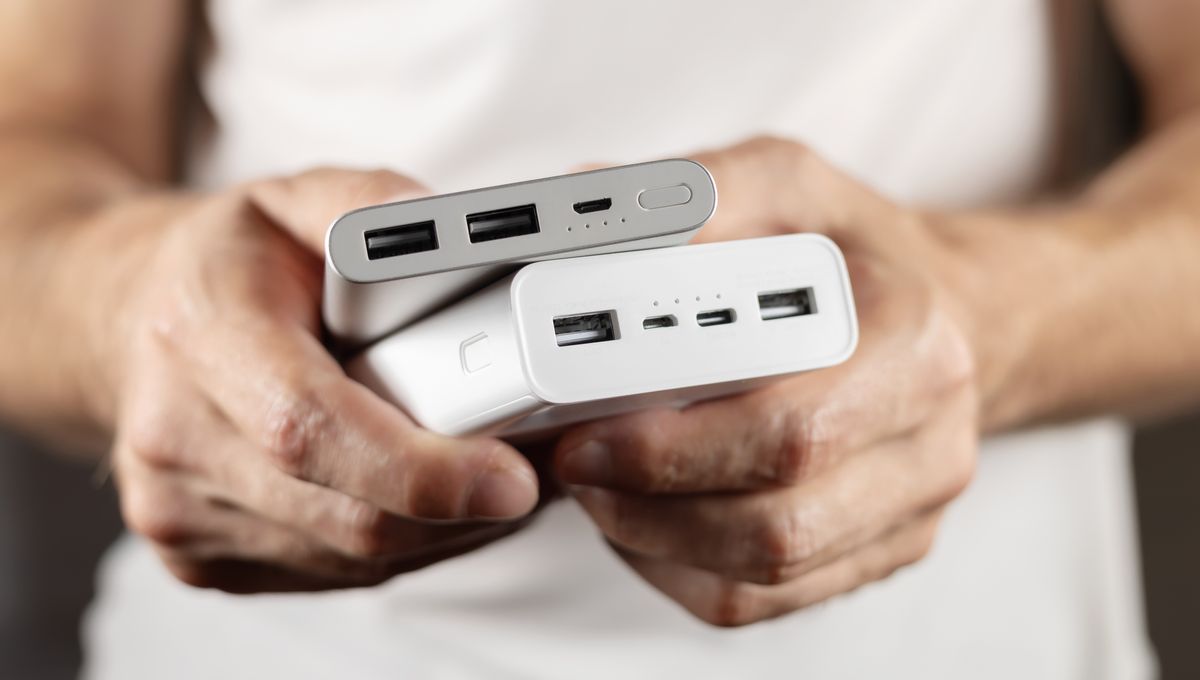
Pet cam footage released by the fire department in Tulsa, Oklahoma, has shown the moment a house caught on fire after the owner’s dog chewed into a lithium-ion power bank.
According to a statement from the fire department posted to social media, firefighters responded to the house fire back in May. Though the building was significantly damaged, nobody was hurt – including the two dogs and a cat inside, who were able to escape through a dog door.
The source of the fire was identified as a lithium-ion power bank or battery pack, which one of the dogs had been chewing whilst lying on its bed. Eventually, the power bank started to spark, causing the dog to drop it. Sparks then turned into flames, the bed caught alight, and a large fire grew.
There’s a reason why lithium-ion batteries make a popular choice to base devices like power banks on – they can store a lot of energy for how lightweight they are, which is pretty convenient when you’re out and about without access to a regular charging point.
But as the Tulsa Fire Department’s public information officer Andy Little explained in a video accompanying the statement, holding that amount of energy can end up being dangerous.
“When this energy is released uncontrollably, it can generate heat, produce flammable and toxic gases, and even lead to explosions,” said Little. “These incidents can occur due to various reasons, such as exposure to extreme heat, physical damage, to the battery overcharging, or even using incompatible charging equipment.”
In this case, physical damage means a dog who mistook a battery pack for a tasty snack – but this type of fire appears to be far from an isolated incident.
“Fire departments all over the country are seeing fires related to these batteries,” reads the department’s statement, “and we want the public to learn about usage, safe storage and proper disposal of these potentially dangerous batteries.”
On that point, Little has some good advice.
“It is crucial that you adhere to manufacturer guidelines when using lithium-ion batteries, only using approved chargers and storing them out of reach of children and pets.”
“Furthermore,” Little continued, “it is imperative to dispose of lithium-ion batteries properly. They should never be tossed in household garbage or recycling bins as they can cause fires during transportation or at disposal facilities.
“Instead, take these batteries to designated recycling centers or household hazardous waste collection points.”
Source Link: Officials Issue Warning After Dog Sets House On Fire By Chewing On Power Bank